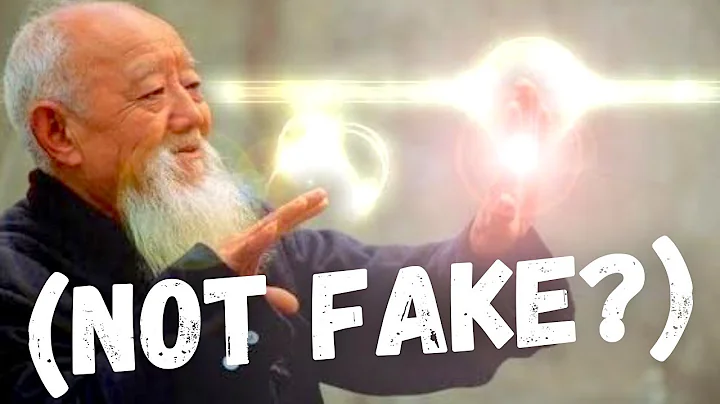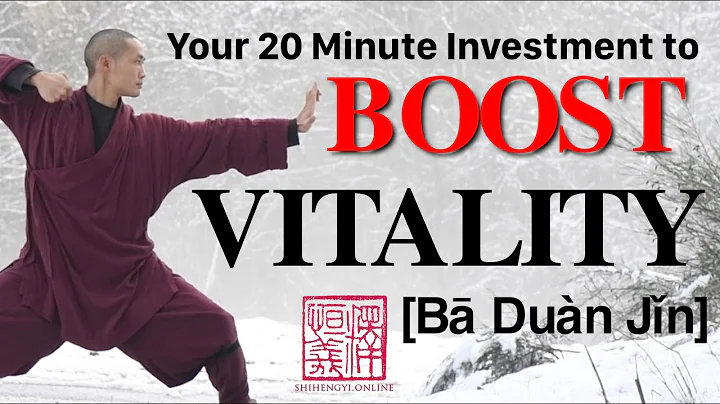The famous martial artist Ma Auditorium said it well: "I am sure that a martial artist without qigong training is by no means the best choice. Practicing martial arts ignores qigong, and problems will definitely occur when you get old, and martial arts cannot achieve superior kungfu.

The martial arts masters of the past dynasties have paid attention to both internal and external training, especially the exercise of Qi. They take Qi training, nourishing Qi, and Qi gathering as the basis of martial arts, and the ability to generate Qi for acupuncture points and martial arts is the superior skill of martial arts.

In martial arts, there are the methods of "training one breath inside, training the muscles and bones outside", "sinking the dantian", "unifying the inside and outside, using the force". Regardless of every school and faction, there are descriptions and requirements for Qi training, Qi training, Qi gathering, luck, and Qi generation. For example, in the familiar eight methods of Changquan, the "spirit, qi, strength, and gong" refer to the training requirements for spirit, consciousness, breathing, and internal strength. Including the use of Qi (lift, support, sudden, sink, etc.). And "hands, eyes, body techniques, and steps" refer to the exercise of the external body. Nanquan There are also requirements for "internal training of mind, mind and strength, and external training of hands, eyes, waist, body, and horse (legs)". In particular, the movements with obvious force must have exhalation and pronunciation. To cooperate with the completion, so in Nanquan exercises also attach great importance to the exercise and application of Qi. For example, in the well-known Shaolin martial arts practice steps at home and abroad, beginners are required to first start with qi training, and pay special attention to the training of qi, which is called the "inner strength gathering" stage. There is a detailed description of Zhuang Zhuang Qi in "The Explanation of Shaolin Patriarchal Clan System": "As for the method of transportation, horse step is the first, also known as standing step or standing pile. If Gou can practice well in horse step, then Qi can penetrate Dantian. "Strong like a tumbler"; "Breathe: the lung is the home of the qi, and the qi is the lord of the strength", "Don't think about it when you breathe. If your thoughts are scattered, the qi will condense and become a barrier. Over time, it will become a disease of qi and ruffling." It is not difficult to see, The consciousness, breathing, and postures introduced here are the same as those in modern Zhanzhuang Qigong. It can also be seen that in the Shaolin Wushu practice steps, not only the importance is attached to the practice of qi, but there are also special movements for the practice of qi. No wonder Shaolin martial arts skills are amazing,It is very influential in history, which is related to their special emphasis on internal and external training.

In addition, in Taijiquan, not only the training of mind but also the training of qi is emphasized. During the practice, it is required to "carry the mind to the body" and closely cooperate with the breathing, pay attention to "regulate the breath with the mind" and "guide the qi with the mind", and have special methods and specific actions to cooperate with the qi training, such as the familiar "tuning" Breathing method, "welcoming air method", "welcoming air method", "qi sinking dantian method", "dantian internal transfer method" and so on. The method of using breathing to train qi is basically similar to the opening, closing, and lifting forms in current medical qigong. Boxing proverbs also pay attention to "luck with the mind", "motivate the qi with the heart" and "sink the dantian with the qi." The relationship between qi and strength is "there is strength when there is qi, and the strength is self-sufficiency." Therefore, in the practice of Taijiquan, while focusing on the practice of qi, nourishing qi, and luck, it also pays special attention to the combination of "intention, qi, and strength". one.

During the exercise of Xingyiquan , I also paid great attention to internal and external training. In particular, the combined use of mind, energy, and strength is particularly emphasized. It requires "Heart and Intent, Mind and Qi, Qi and Power, Shoulder and Hip, Elbow and Knee, Foot and Hand. Practice from various schools. In terms of requirements and practice, the spirit, consciousness, and spirit are closely related to martial arts practice. At the same time, it can be explained that internal and external training plays an extremely important role in martial arts, so they all regard internal and external training as the basic elements of exercise.
In history, some famous martial artists, such as Guo Yunshen, Liu Qilan, Dong Haichuan, Wangziping, etc. have also cultivated their internal skills.
Practicing martial arts and qi, and some are also known as hard qigong, the famous martial artist Ma Litang said well: "I am sure that a martial artist without qigong training is definitely not the best choice. Practicing martial arts ignores qigong, and problems will definitely occur when you get old, and martial arts cannot achieve superior kungfu. "The famous Tai Chi master Shen Shou once said: "Chinese boxing has always emphasized the principle of Qigong."Boxing proverb says: "Outside is a fist, inside is qi", and it says: "Exercise the muscles and bones outside, and practice one breath inside." All fully explained the core role of qigong in martial arts.

It can be seen that the martial artists of previous dynasties not only paid attention to martial arts, but also paid great attention to the exercise of qigong, and they also paid special attention to the combination with martial arts. In fact, martial arts and Qi training are an integral and indivisible organic whole. , Has the effect of complementing each other and promoting each other in exercise. Therefore, while practicing martial arts, we should also pay attention to the exercise of Qi; do both internal and external training, only in this way can we achieve internal strength and external strength.
(Hello fans! This account will show you all kinds of Qigong, Shuang Gong, Kung Fu, Sanda, Wushu and other text, pictures, videos and other materials. Welcome to comment. Welcome to follow This account! Please click "Follow" at the top right! Thank you!)
.










